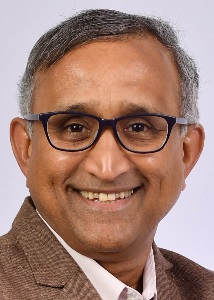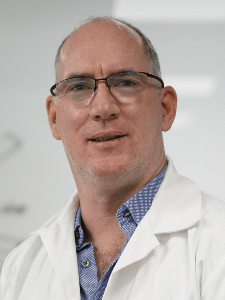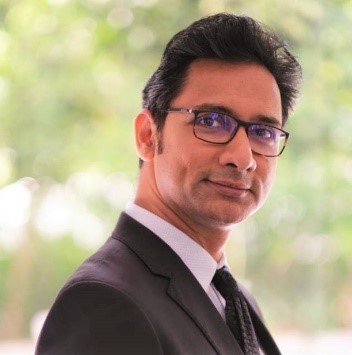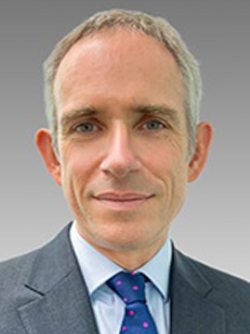Executive Certificate in Corporate and Environmental Sustainability
The adverse effects of climate change on the environment and society globally have caused companies to come under increasing pressure from various stakeholders, such as governments, regulators, and activist groups, to adopt more sustainable and socially responsible business practices.
Committed to playing its part towards the world’s climate action and sustainability goals, the Singapore government has launched the Singapore Green Plan 2030 to build a green economy and a sustainable future. To increase corporate accountability, the Singapore Exchange (SGX) will also require companies to provide various climate-related disclosures from FY 2022.
While more companies are recognising the necessity and benefits of integrating sustainability into their corporate strategy and practices, not many have the knowledge and skills to get started.
Nanyang Business School (NBS) has introduced an Executive Certificate in Corporate and Environmental Sustainability to bridge this gap. The aim is to provide business leaders and professionals with a broad understanding of the critical issues, strategies, innovations, technologies, reporting requirements, and practical frameworks, plus toolkits to lead sustainability initiatives in their organisations.
Offered in two modules, the comprehensive programme is designed and delivered in partnership with renowned domain experts, thought leaders, and industry leaders from Earth Observatory of Singapore (EOS) from the Asian School of the Environment, WTW and many more.
Module 1: Strategy, Risk Management and Design for Sustainability
- Introduction to Corporate Sustainability
- Surviving and Thriving Amidst Climate Change
- Climate Risk Assessment and Management
- Digital Technology for Sustainability
- Clean Energy Technologies for Decarbonisation
Module 2: Sustainable Finance, Carbon Management and Reporting for Sustainability
- Carbon Management (carbon emissions and accounting)
- Sustainability Reporting
- Sustainability Metrics and Decision Making
- Sustainable Finance
Participants can choose to attend both modules in the same run (total of 9 days) or separately as stand-alone modules.
For more information about this programme, please contact:
Email: [email protected]
- Integrate sustainability into your corporate strategy and decision-making, by learning a comprehensive set of frameworks that goes beyond simply measuring and reporting carbon footprint. With increasing focus on climate change, companies must rethink their business strategy, innovate their product and process design, and adopt more sustainable practices such as lean and green operations, responsible sourcing, sustainable finance and impact investing to create long term value.
Learn from and network with an unparalleled panel of distinguished professors, thought leaders, and industry leaders in the climate change and sustainability domains.
Benefit from a robust curriculum anchored on deep research, evidence-based insights, case studies, frameworks, and real-world application.
Gain access to the prestigious NBS and NTU Alumni associations for valuable networking opportunities.
 | The Asian School of the Environment (ASE) integrates earth and environmental life science, ecology, engineering and technology, human ecology, humanities, and the social sciences to address key issues of the environment and sustainability. |
 | WTW (formerly Willis Towers Watson) provides data-driven, insight-led solutions in the areas of people, risk and capital that make your organization more resilient, motivate your workforce, and maximize performance. |
Module 1: Strategy, Risk Management and Design for Sustainability
| Key Learning Outcomes | |
|---|---|
| Introduction to Corporate Sustainability |
|
| Surviving and Thriving Amidst Climate Change |
|
| Climate Risk Assessment and Management |
|
| Digital Technology for Sustainability |
|
| Clean Energy Technologies for Decarbonisation |
|
Module 2: Sustainable Finance, Carbon Management and Reporting for Sustainability
| Key Learning Outcomes | |
|---|---|
| Sustainable Finance |
|
| Carbon Management | Understand the Why, What and How of Carbon Management:
|
| Sustainability Metrics and Decision Making |
|
| Sustainability Reporting |
|
Participants may choose to attend both modules in one run or stagger the modules across two cohorts. Each module can be taken as a standalone course.
- Business leaders or professionals from any industry or sector tasked to drive sustainability initiatives in their organisations
- Professionals who are interested in broadening their understanding of climate change issues and corporate sustainability
Next intake(s):
Intake 15
Module 1 (4 days): 16, 17, 27, 28 Mar 2026 (Apply here)
Module 2 (5 days): 8, 9, 10, 16, 17 Apr 2026 (Apply here)
Intake 16
Module 1 (4 days): 10, 11, 18, 19 Sep 2026 (Dates TBC)
Module 2 (5 days): 14, 15, 16, 22, 23 Oct 2026 (Dates TBC)
If an intake is fully subscribed, your application will be considered for the next available intake. If you prefer to attend a specific intake or wish to be waitlisted, please drop us an email at [email protected].
Training is conducted
from 9 am to 5 pm daily unless specified otherwise. If an intake is fully subscribed, your application will be considered for the next available intake.
Venue:
Lifelong Learning Institute (LLI)
11 Eunos Road 8, Singapore 408601
MRT: Paya Lebar Station (Exit B)
Nanyang Executive Education reserves the right to change the date, venue, and mode of delivery due to unforeseen circumstances.
All applications
will be reviewed by our Admissions Committee. We reserve the right to accept or
reject the application of any participant without assigning any reasons
whatsoever and the Office’s decision will be final.
Programme fee of Module 1: S$3,950 (before GST), S$4,305.50 (with GST)
Programme fee of Module 2: S$4,950 (before GST), S$5,395.50 (with GST)
Fees payable after SkillsFuture Singapore (SSG) funding:
| Programme Fee in SGD (Module 1) | ||||
|---|---|---|---|---|
| Fees BEFORE funding & GST# | Fees AFTER funding & 9% GST# | |||
| Singapore Citizens (aged 21-39) / PR (aged ≥21) 50% Funding* | $3,950.00 | $2,330.50 | ||
| Singapore Citizens (aged ≥40) MCES1* - up to 70% | $3,950.00 | $1,540.50 | ||
| SME-sponsored Singapore Citizens / PR ETSS2 - up to 70% | $3,950.00 | $1,540.50 | ||
| International Participants without funding | $3,950.00 | $4,305.50 | ||
| Programme Fee in SGD (Module 2) | ||||
|---|---|---|---|---|
| Fees BEFORE funding & GST# | Fees AFTER funding & 9% GST# | |||
| Singapore Citizens (aged 21-39) / PR (aged ≥21) 50% Funding* | $4,950.00 | $2,920.50 | ||
| Singapore Citizens (aged ≥40) MCES1*- up to 70% | $4,950.00 | $1,930.50 | ||
| SME-sponsored Singapore Citizens / PR ETSS2 - up to 70% | $4,950.00 | $1,930.50 | ||
| International Participants without funding | $4,950.00 | $5,395.50 | ||
# GST is based on full course fee before funding.
*Applicable for both self-sponsored and company-sponsored participants.
1. For more information about the Mid-career Enhanced Subsidy (MCES) scheme.
2. For more information about the Enhanced Training Support for Small & Medium Enterprises (ETSS) scheme.
Participants do not need to contact SkillsFuture for funding application before course registration. Participants will be invoiced the nett amount after funding and GST.
SkillsFuture Credit - for self-sponsored
On top of the above funding schemes, Singapore Citizens, aged 25 and above and self-sponsored may use their SkillsFuture Credit (base tier) to defray part of the nett course fee. The $4,000 Additional SkillsFuture Credit (Mid-Career Support) is not applicable for this course. Click here for SkillsFuture Credit submission.
SkillsFuture Enterprise Credit - for SME-sponsored
Eligible Singapore-registered companies can tap on $10,000 SkillsFuture Enterprise Credit to cover up to 90% of out-of-pocket expenses. Click here to submit SkillsFuture Enterprise Credit.
NTU Alumni Course Credits
All self-sponsored NTU/NIE alumni may utilise their Alumni Course Credits (ACCs), up to $500 per course/module, as direct discounts on the course/module fee before any applicable eligible funding is applied.
For more info on ACCs, please click here.
Please note that the programme fees are subject to change without prior notice. Funding for courses is limited in duration and subject to the prevailing conditions of the funding agencies.
Funding Requirements:
- Participant must achieve at least 75% attendance for the programme.
- Participant must complete and pass all assignments / assessments as assigned by the trainer.

Deputy Dean, Nanyang Business School, NTU Singapore
Director, Information Management Research Centre (IMARC)
Head, Division of Information Technology and Operations Management
Prof Boh received her PhD from the Tepper School of Business at the Carnegie Mellon University. She is also Head of the Division of Information Technology and Operations Management and Director of the Information Management Research Centre at NTU. Her research interests are in the areas of knowledge and innovation management and social media. She has published more than 20 articles in top journals, including Management Science, MIS Quarterly, Academy of Management Journal, Organization Science, and Journal of Management Information Systems, etc.
She has spoken in multiple industry conferences, and specializes in research and training for entrepreneurs, leaders and executives in areas related to design thinking, innovation and entrepreneurship. Prof Boh is frequently quoted and interviewed in the media and has published several commentaries in local newspapers.

Director of the Centre for Business Sustainability
Professor, Operations Management, Nanyang Business School, NTU Singapore
Dr S. Viswanathan (Vish) is Professor of Operations Management at Nanyang Business School. He also serves as the Director of the Centre for Business Sustainability and as Cluster Director of the Energy Research Institute @ NTU (ERI@N). He has previously served as Associate Dean (Research), Head of the academic Division of Information Technology &
Operations Management (ITOM), Director of the PhD Program and Program Director of MBA specialization in Technology and Operations.
Vish’s teaching interests are in Operations Management, Corporate Sustainability, Sustainable Business Operations, Inventory Theory, and Optimization. He currently teaches in the Masters, PhD, MBA and Executive Programs.
His research has been published in Financial Times and BusinessWeek-ranked top tier business journals such as Management Science, Operations Research, Production and Operations Management, Journal of Operations Management and other top journals in the field.

Director, Undergraduate Research Experience on Campus (URECA)
Professor, Asian School of the Environment
Director, CIFAL @ NTU, Asian School of the Environment
Assistant Dean (Development), at Nanyang Technological University
Dr. Switzer holds multiple significant positions, including Professor of Coastal Science at the Asian School of the Environment, Assistant Dean (Development) at the College of Science, Director of Undergraduate Research Experience on Campus (URECA), Director of CIFAL Singapore, and Principal Investigator at the Earth Observatory of Singapore (EOS). As a versatile coastal geoscientist, his research is focused on applying interdisciplinary geoscience to address contemporary coastal challenges at various scales, ranging from local to international.
In his research pursuits, Dr. Switzer explores into critical areas such as catastrophic marine inundation events (like tsunamis or large storms), sea level changes, and the evolution of coral reefs and tropical coastal systems. He acquired his BSc and PhD in Geosciences from the University of Wollongong, Australia, and furthered his research through an Endeavour Australia Cheung Kong fellowship at The University of Hong Kong. Adam is widely recognized as an expert in coastal science, particularly in the study of coastal hazards and Quaternary geology, where he applies diverse geophysical and geological techniques to study and reconstruct environmental changes in coastal systems across various Asian countries. His ultimate aim is to contribute to the development of safer and more sustainable communities in Asia through his research program at the Earth Observatory of Singapore, engaging in collaborations with individuals from ten Asian nations.

Assoc Prof. Matt Dearth
Adjunct Faculty at Nanyang Business School
Matthew Dearth, PhD, is a Managing Director at Silvercrest Asset Management (Singapore) and head of the Singapore office. His 30 years of finance industry experience also includes leadership roles at Marshall Wace, Goldman Sachs, and Booz Allen & Hamilton.
Since 2016 he has been teaching postgraduate finance courses on alternative investments as well as sustainable and impact investing at Singapore Management University. While teaching at SMU he was recognized on the Dean’s Teaching Honor List for Top Adjunct Faculty (Postgraduate Programs) from 2019-2021. Beginning in 2023, Dr. Dearth will teach undergraduate and postgraduate courses in sustainable finance at Nanyang Business School. He is the co-author of “Getting Started in Alternative Investments” (Wiley, 2023) and has published three case studies on investment management topics.

Constant Van Aerschot
Director for Asia Pacific, Accounting for Sustainability (A4S)
Mr. Constant Van Aerschot is the Director for Asia Pacific at Accounting for Sustainability (A4S). A4S was established by HM King Charles III in 2004, when he was The Prince of Wales. A4S’s aim is to inspire action by finance leaders to drive a fundamental shift towards resilient business models and a sustainable economy.
Constant is also an Adjunct Associate Professor at the Nanyang Business School, Nanyang Technological University (NTU) in Singapore, a Director of Earth on Board, an organisation dedicated to sustainability training for Board of Directors, and a member of the Executive Council for United Nations’ ESCAP Sustainable Business Network (ESBN).
He has more than 15-years’ experience in sustainability with a particular expertise in the built environment. His previous position was Director Asia Pacific at the World Business Council for Sustainable Development (WBCSD) and was the senior policy researcher at “Cooling Singapore”, a project funded by NRF.

Nilesh Jadhav
Head, Energy Performance & Sustainability, Smart Infrastructure-RSS, ASEAN/APAC
Adjunct Associate Professor, Nanyang Technological University Singapore
Member, Sustainable Energy Association of Singapore (SEAS)
Silver Member, International Solar Energy Society (ISES)
With over 20 years of experience in the field of clean energy and decarbonization, Nilesh Jadhav is a passionate champion of accelerating the net-zero transition for organizations and communities. He is the Head of Energy Performance and Sustainability business (ASEAN) at Siemens, Smart Infrastructure-RSS, where he leads the delivery of end-to-end decarbonization solutions and digital services for sustainability.
Nilesh Jadhav is previously the founder and CEO of Qi Square Pte Ltd, a Singapore company focused on digitizing the building industry for a sustainable future. He is also a passionate clean energy technopreneur. His experience spans across technology development, operations management, R&D outfits, and start-ups in the clean energy space. He has been actively involved in clean energy policy development through participation in projects such as Singapore’s Energy roadmaps with NCCS and sitting on boards of government and semi-government institutions such as the Sustainable Energy Association (SEAS) and Singapore Green Building Council (SGBC).
He has been involved in writing the Technology Primers on Smart Grids and Solar Technologies for the National Climate Change Secretariat (NCCS, Singapore) and also was the project lead for developing Singapore’s first Technology Roadmap in the area of Energy Efficient Building Technologies with the Building Construction Authority (BCA) of Singapore.
He is a published author (book: Green & Smart Buildings- advanced technology options, Springer, 2016) and also a visiting Professor of Practice at Universities in Singapore and India.

David Hill
Regional Head
Risk and Analytics, SE Asia
Willis Towers Watson
David is Regional Head of Willis Towers Watson’s Risk and Analytics for SE Asia with 30 years of risk and insurance advisory experience. He now leads risk advisory services together with a team of actuaries, analysts, climate scientists, engineers, forensic accountants, strategic risk consultants, and alternative risk transfer specialists.
Previously David has held senior global in-house roles as Head of Enterprise Risk and Head of Insurance in the FMCG and Marine sectors with Cadbury and AET. He also has extensive Risk Management consulting experience in Asia and Europe in past roles with Insurers and Brokers advising on insurable and ESG risk management.
His in-house responsibilities included establishing and embedding Enterprise Risk Management frameworks following principles of ISO31000 and COSO. In these roles he has defined risk appetite criteria for the BoD, directed operations management in their risk management responsibilities and presented regular board reports to uphold strong ESG practices.
David graduated in Mechanical Engineering and is a Chartered Engineer, Member of the Institute of Engineering and Technology, and Fellow of the Institute of Risk Management in London.



